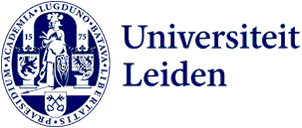
The lifecycle of a cigarette filter
The university is launching a campaign to focus extra attention on our smoke-free university locations. The University is using aptly named cigarette barrels to try to show clearly just how many cigarette filters are being saved from the environment. How harmful are these cigarette filters to the environment?
Environmental damage
Every year, the Dutch buy a total of 10 billion cigarettes, more than 10 per cent of which have a plastic filter. The filters are designed to keep some of the harmful substances out of the lungs of smokers. However, a number of chemical substances that are used as pesticides in tobacco production, such as herbicides, fungicides and insecticides, are left behind in the filter. Research by Nederland Schoon has shown that 80 to 90 per cent of smokers throw this cocktail of plastic and toxins on the ground without a moment’s thought.
Once in the natural environment, cigarette butts continue to cause harm: nearby plant species grow less well and every cigarette butt pollutes eight litres of water. Birds or fish can also take a cigarette butt as food. Filters are made of cellulose acetate, a non-biologically degradable type of foam plastic. Filters are not made of paper or cotton, as people often mistakenly believe. It can take up to ten years for this cellulose acetate to break down, disintegrating as microplastics. Together with the remaining harmful substances, the microplastics seep further into the soil, eventually ending up in the water.

Recycling
Initiatives to recycle cigarette butts and to recover the raw materials in the filters are popping up all over the world. The cellulose acetate in filters is not only a slowly degrading plastic, it is also a valuable polymer. It is possible to melt the filters and process them into hard plastic pellets. Combined with granules of other recycled plastics, the pellets are used as raw material for the production of such items as crates and pallets. The challenge of the process is to find a way to separate the toxic substances in the filters from the plastic.
One initiative that deals with the recycling of cigarettes in the Netherlands is Peukenzee, a company founded by two students. They and their growing team conduct research on the most economical and ecological way to recycle cigarette butts. They need a lot of cigarette filters for their research. After the awareness-raising campaign, the university will therefore donate the collected cigarette butts to Peukenzee.
A clean environment together
There are a number of ways in which students and staff can contribute to an environment free of cigarette butts. Smokers can pay attention to where they leave their cigarette ends and others can remind them to dispose of the butts in a waste bin. There are different websites that smokers who want to quit can consult, including such Dutch sites as ikstopnu.nl, rookvrijookjij.nl, or they can contact their GP. Since 2020, health insurers are no longer charging any excess for programmes that help people to quit. For more information on stopping smoking, the university is organising action days in June, September and October
This article is in the context of the ’Smoke-free University’. For the past two years, smoking has been banned on the whole University site. Nonetheless, there are still a lot of cigarette butts littering the ground around the buildings. The University’s aim with this campaign is to make people aware of the environmental damage caused by cigarette filters.
On 30 May, the University placed containers at seven University buildings to collect the cigarette butts that people have dropped on the ground. The University wants to show how many cigarette butts are being removed from the environment. Once the campaign has ended, the contents of the containers will be donated to Peukenzee, a lobby group aiming to stop cigarette butts being discarded on the streets, to support their research on recycling of cigarette filters.
